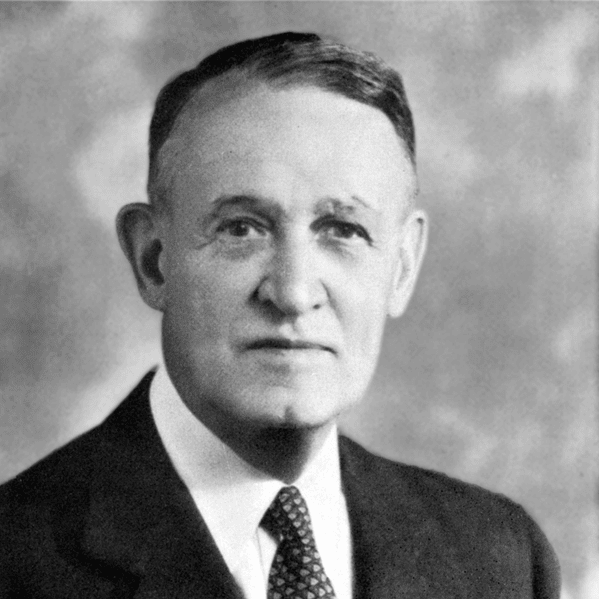Presidential Address
In Memoriam
From the American Historical Review 60:2 (January 1955)
William Linn Westermann (September 15, 1873–October 4, 1954) upheld the highest traditions of American scholarship in ancient history. Born in Illinois in 1873 and graduated from the University of Nebraska in 1894, Westermann began his teaching career in the classics, serving as assistant in Latin at his alma mater and as instructor and assistant professor of Latin and Greek at the University of Missouri. But as a student at the University of Berlin, where he came under the influence of Wilamowitz-Möllendorff and Eduard Meyer and took his doctorate in 1902, his major interest was in ancient history, and from 1906 to 1908 he was assistant professor of history at the University of Minnesota. Thereafter he held professorial positions in history at the University of Wisconsin (1908–20), Cornell (1920–23), and Columbia (from 1923 until his retirement as professor emeritus in 1948). His teaching was not yet at an end, however, for in 1949 and again in 1953–54 he was visiting professor at Alexandria University in Egypt. Ancient social and economic history, particularly as illuminated by the Egyptian papyri, was the field which he cultivated most assiduously and intensively and in which he made his greatest contributions. He loved research and was tireless in carrying it on until he was disabled by a fatal brief illness. The list of his publications is long and impressive. Ancient slavery was a subject that he made peculiarly his own and on which his authority was universally recognized. The long article on it that he contributed to Pauly-Wissowa-Kroll, Real-encyclopadie der classischen Altertumswissenschaft, Supplementband VI (1935), served as the basis of what he regarded as his most important work, The Greek and Roman Systems of Slavery in Antiquity, which was in press at the time of his death and is to be published by the American Philosophical Society in the immediate future. But for all his devotion to specialized research, Westermann was no esoteric. He believed in making the work of the specialist available to nonspecialists, as many of his articles attest. He took time off, moreover, to serve his country—as adviser on Turkish affairs and chief of the division of Western Asia in the American Commission to Negotiate Peace at Paris in 1919, as delegate on the Greek Territorial Commission at the Paris Peace Conference, and as a member of the commission reporting to the State Department on the Armenian boundary decision in 1920. He was president of the American Historical Association and the recipient of many academic honors. The trustees of Columbia University voted to award him the honorary degree of doctor of letters, to be conferred at the Columbia Bicentennial Convocation on October 31, 1954, but death prevented him from receiving it.
Bibliography
The story of the ancient nations: a text-book for high schools, by William L. Westermann. New York, London: D. Appleton, 1912.
Greek papyri in the library of Cornell University, edited with translations and notes by William Linn Westermann and Casper J. Kraemer, jr with nineteen plates. New York: Columbia University Press, 1926.
Tax lists and transportation receipts from Theadelphia, edited with introductions and notes by William Linn Westermann and Clinton Walker Keyes. New York: Columbia University Press, 1932.
Peoples of the Near East without a national future. New York: Council on Foreign Relations, 1944.
Apokrimata: decisions of Septimius Severus on legal matters. Text, translation, and historical analysis by William Linn Westermann; legal commentary by A. Arthur Schiller. New York: Columbia University Press, 1954.
The library of ancient Alexandria; lecture delivered at the University Reception Hall, Monday, December 21, 1953. Egypt: University of Alexandria Press, 1954.
The slave systems of Greek and Roman antiquity. Philadelphia: American Philosophical Society, 1955.
